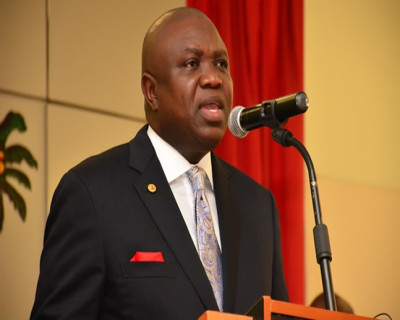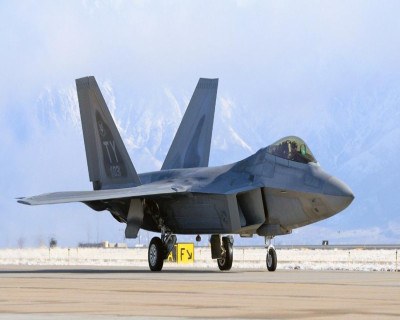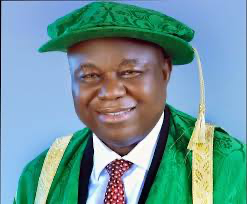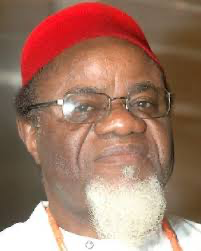... As Putin warns threat of nuclear retaliation against West is ‘not a bluff’
By Matthew Bodner
LONDON — The Kremlin has for months fought to maintain a sense of domestic normalcy while pursuing its faltering war in Ukraine. President Vladimir Putin’s declaration of a “partial mobilization” has, for some Russians at least, shattered that illusion.
By the time Putin’s recorded announcement was done playing on TV on Wednesday, Russians were scrambling to buy the last available flights out of the country and opposition groups were calling for protests as his order bred a sense of unease at home, just as his nuclear threats sought to do abroad.
By late evening, more than 1,300 people had been detained at protests denouncing the move, a rights group said.
For the first time, many draft-age Russian men and their families are contending with the prospect of fighting and dying in a conflict the Kremlin just intensified. It’s a line Putin has seemed loath to cross despite growing pressure, one that analysts warned could backfire on the Kremlin.
“I feel anger for those who made this decision,” said Ksenia, 28, a product manager in Moscow who declined to give her last name out of concern for her safety. “I feel fear for my relatives, friends, acquaintances and colleagues. I imagine myself in their shoes, forced to go off to a war that you didn’t choose, that you don’t support, that they grab you right off the streets to go and fight in.”
For many ordinary Russians, this late summer morning brought back memories of Feb. 24 — when they awoke to the news that their president had already launched what the Kremlin insists on calling its “special military operation.” Putin waited until business hours in Moscow to announce the call-up of reservists Wednesday, but the shock was the same.
“The news was worse than I expected,” said Andrei, 30, a financial analyst in Moscow who similarly declined to provide his last name out of fear for his safety. “I am stupefied by the degree of absurdity and madness to which we now bear witness.”
Protesters took to the streets across the country to voice their opposition to the move. By Wednesday night, 1,311 people in 38 cities had been detained under Russia’s anti-protest laws, according to the independent OVD-Info protest monitoring group.
It said those figures included at least 502 in Moscow and 524 in St Petersburg, Russia’s second most populous city.
Throughout Putin’s tenure, the Kremlin has fostered a reputation for testing the limits of an arrangement in which Russian citizens largely agree to stay out of politics if the state stays out of their lives. But it has always demonstrated a sense of restraint, a hesitation to take things too far and risk sparking a broad-scale backlash.
With his military in retreat and Ukraine advancing, analysts said Putin appears to have made the largest political gamble of his career.
“The social contract has been violated,” said Andrei Kolesnikov, a senior fellow at the Carnegie Endowment for International Peace.
Putin's partial military mobilization greeted with enthusiasm on Moscow's streets
For weeks now, as Ukraine successfully staged two counteroffensives that put Putin’s military on its back foot, pro-war activists have been calling for the Kremlin to take the gloves off — criticizing the way much of Russian society has been allowed to sit on the sidelines.
Alexander, 32, of Moscow, said he wasn’t worried about being called up Well, it’s OK,” he said. “We will go fight a little.” Alexander, who declined to give his last name, said that he has military experience — he was a T-90 tank commander
In the first days and weeks of the conflict, there was a real sense of shock in Russia as the country became a global pariah abandoned by Western businesses.
But, over time and with ample encouragement from the Kremlin, the general public was able to carry on with life and not think too much about the war. In Moscow and St. Petersburg especially, the summer of 2022 was enjoyed much like any other.
The war felt a world away. Now, rather suddenly, the war feels quite close to home.
A panic last seen in February erupted again on Russian social media.
Hugely inflated prices on flights traveling to any destination still accepting Russian travelers — such as Turkey and Armenia — were no deterrent. According to some Russian travel sites, flights are fully booked for almost a week.
Unverified rumors spread of authorities’ turning men away as they sought to leave the country. The Kremlin declined to comment on whether the borders would be closed to those subject to the mobilization order, and it asked people to be patient as the law is clarified.
“People are worried. They have a lot of questions,” Stanovaya said. “It was said that this was a very limited, short-term special military operation and there was no need for any participation by ordinary Russians. Now this has changed, but a lot will depend on the scale of this mobilization.”
It might take months to deliver any tangible change in Russia’s fortunes on the battlefield. And if limited mobilization efforts fail, Putin may already have the tools he needs to draft any military-age man across the country.
“I feel like I am being held hostage by a crazy maniac who every day changes the plans for my death to something even crazier,” said Maxim, 30, an IT manager who also declined to give his last name out of concern for his safety. “My employees are all young and have families. They get these pieces of paper, and they don’t understand what to do next.
“They are scared,” Maxim said. “This is not their war. They want to live a normal life in a normal country.”








